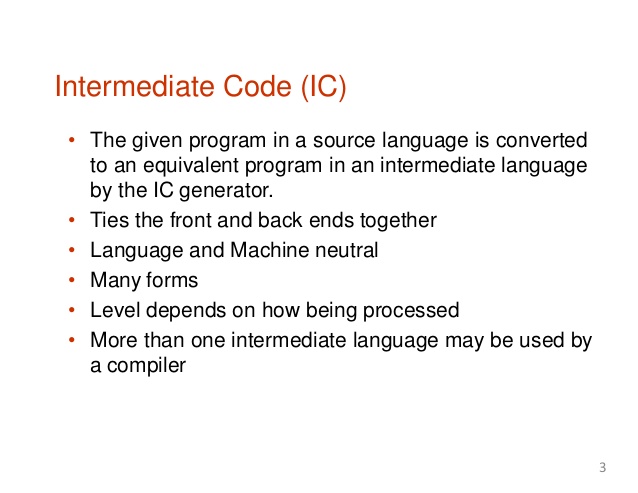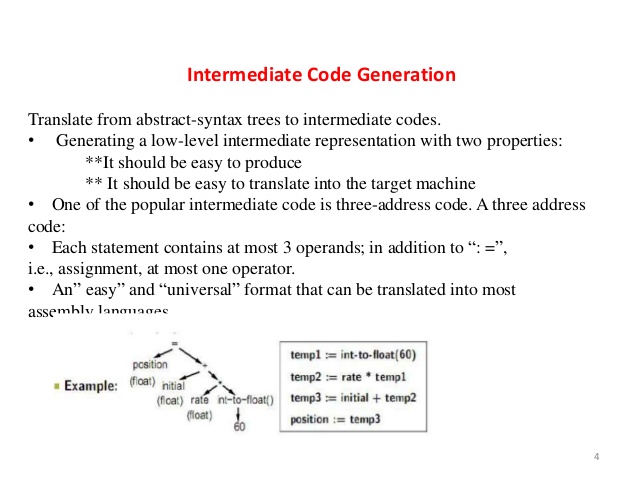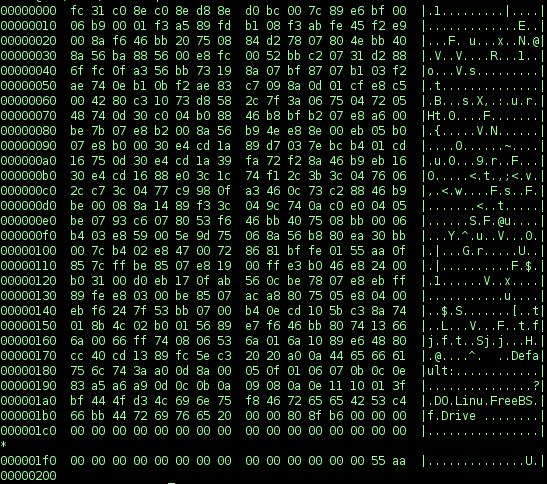Intemediate code , object and executable code introduced in C language ( module 4).
In this module we will discuss how the input is converted to intermediate codes and then to executable binary code by compilers.

Do you have similar website/ Product?
Show in this page just for only
$2 (for a month)

0/60
0/180
This is the 4th module on learning C with us. Earlier we discussed on the basic introduction and structure of C, preprocessor and the features of it in C language. In this section we will briefly discuss on the intermediate and executable codes used in C.


Intermediate code :-

C program is the set of instructions or statements for any problem definition or application. This is the source code & thus is given to the C compiler.

The compiler in turn will take this as a source & translate into a syntax tree. The syntax tree is translated into intermediate code. The source code is converted into machine code ultimately after the successful compilation through intermediate code.
Object & Executable codes :-
After successful compilation of C file, the compiler produces an object file. If the C file is abc.c then after compilation abc.obj file is generated by the compiler. The object codes are nothing but the machine code that is understand by the computer.

After creating object file the compiler then links objects file with object code of library functions & produces an executable file that contains executable code. Now using only abc.exe executable file we can run the program & see the output on the screen of the monitor.
For next modules on C language please be updated with us only on Www.newsandstory.com
CONTINUE READING
Programming
coding
#c language
Dalpat I
Content writer
